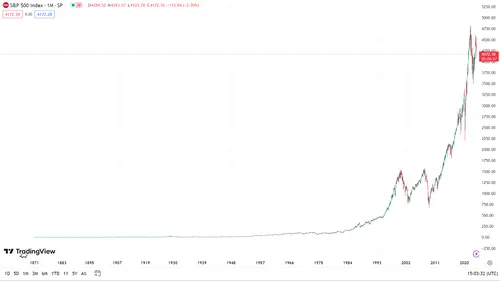Our partner, XM, lets you access a free demo account to apply your knowledge.
No hidden costs, no tricks.

When traders decide to pick an instrument to add to their portfolio, they suddenly have a very diverse market to choose from, which can be more difficult than it initially sounds.
Comparing the performance of individual assets, es stocks, can be challenging. While stocks from the same industry may share more characteristics, they can still be vastly different in certain areas.
This is why stock market benchmarks exist. A benchmark is an asset that is used to compare the performance of other assets to a basket of investments. For example, the S&P 500 is widely regarded as the benchmark index of the United States stock market.
Benchmarks serve an important function in financial markets, as they provide a point of reference that puts into perspective the performance of the entire market as it relates to the performance of the benchmark in question.
If you are a beginner trader and would like to know more about what benchmarks are and how they work, this Investfox guide is for you.
Benchmarks are important in trading due to multiple reasons, such as:
As mentioned above, the S&P 500 is one of the clearest examples of a benchmark on the stock market. The index consists of 500 of the largest publicly listed companies on the NYSE and Nasdaq.
The S&P 500 is a market capitalization-weighted index, which means that the index is weighted more heavily towards the largest constituents of the index, such as Apple (AAPL) and Microsoft (MSFT).

As we can see, the index shows the incredible growth of asset prices over the past 2 decades, which also serves as a reference point and affects the investment decisions made by participants in the modern market.
It must be noted that the S&P 500 is a benchmark for the U.S. stock market and other asset markets have benchmarks of their own.
Our partner, XM, lets you access a free demo account to apply your knowledge.
No hidden costs, no tricks.
Trading benchmarks are specific performance reference points used by traders to assess the success of their trading strategies. These benchmarks can be market indices, such as the S&P 500, or custom benchmarks created to evaluate strategy performance against defined criteria.
Yes, the S&P 500 is a widely recognized benchmark. It represents a diverse portfolio of 500 large-cap U.S. stocks, often used to assess the performance of investment portfolios and trading strategies in comparison to the broader U.S. stock market.
In trading, benchmarks serve as reference points to measure the performance of investment portfolios or strategies. Traders compare their returns and risk metrics to benchmark indices or custom benchmarks to assess how well their trading efforts have performed relative to a chosen standard.